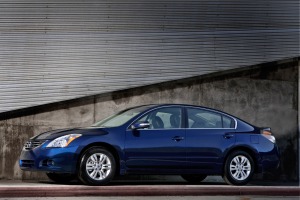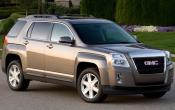Now that "Cash for Clunkers" is in our rearview mirrors, sales have slowed down again and many people are wondering if this is a good time to buy a car. While prices are up and incentives are down, there are still good deals, tax deductions, federal hybrid credits and a bounty of new models to choose from.
If you are one of those people who has to buy a car now, or one of the fortunate ones who is unaffected by the economy, you should know that there are programs and strategies many shoppers don't know about. Here at Edmunds.com we've been watching the market and trying to make sense of it all. We've sifted through the fine print to bring you a new road map for car buying. Here at 10 stops along the way that will get you the car of your dreams.
Step 1: Is this a good time to buy?
Step 2: Should I consider buying a car online?
Step 3: How does the government sales tax deduction help?
Step 4: What are Federal Tax Credits and how do they help?
Step 5: Are there incentives on conventional vehicles?
Step 6: If there aren't any incentives, are there still bargains?
Step 7: I like to lease but I heard you can't do that anymore.
Step 8: What is the best way to choose my next car?
Step 9: I know what I want to buy, how do I get the best price?
Step 10: How do I handle a trade-in?
Step 1: Is this a good time to buy?
The Cash for Clunkers program has left the industry with a hangover — car lot inventories are low and many of the bargains we saw recently have disappeared. However, savvy shoppers can still find bargains in some categories. Also, this is the end of the model year for 2009 so prices on these vehicles will begin to drop and incentives are sure to appear soon.
Keep in mind that prices follow sales. So if the sale of vehicles continues to slump, prices will fall across the board. Keep track with TMV Predicted Price Trends and make your move at the right time.
Step 2: Should I consider buying a car online?
In California, GM is testing
a program
to sell its vehicles online through eBay. This takes a lot of the stress out of negotiating but you will still need to make sure the deal is financed wisely. And avoid the upsell once you are in the dealership for extended warranties and other add-ons.
Even if you are not interested in a GM product, online car buying has come of age. Use the Dealer Locator to request quotes from local dealers. We have more on Internet car buying in Step 9.
Step 3: How does the government sales tax deduction help?
To boost car sales, the government announced it would allow consumers to deduct a car's sales tax from their federal return. In some states, on a $25,000 vehicle, this is a $2,250 deduction. The net effect is that this lowers your total cost of buying a new vehicle.
What if you live in a state where there is no sales tax? The government has decided that you can still deduct related expenses such as registry fees. For more information on the tax-related programs, please see this page on New Vehicle Tax Deductions for 2009.
Step 4: What are Federal Tax Credits and how do they help?
Federal tax credits are available for hybrids and vehicles powered by alternative energy fuels such as natural gas and diesel. The credits are offered to encourage people to buy fuel-efficient and alternative fuel cars. Typically, these cars are more expensive and the hybrid tax credit is designed to offset that extra cost.
On our Federal Tax Credits page we have noted the funds for a few federal tax programs for hybrids have expired, or tax credits for individual vehicles which have been reduced and will soon be exhausted. The federal tax credits listed here can be used only by the original owner and will not help the person who leases one of these vehicles. Additional tax credits, deductions and incentives may also exist from state or local agencies. For more information, see our article on hybrid tax credits and how to apply them.
Step 5: Are there incentives on conventional vehicles?
Incentives — such as customer cash, low-interest financing and special lease deals — are offered on slow selling vehicles. Recently, that includes virtually all makes and models so it's essential to check Incentives and Rebates before you decide what to buy.
Slow sales have brought an increase in the creativity manufacturers use to move their products. This has created programs such as Hyundai's buyer's assurance promotion and a host of imitators. We also see offers of gas stabilizing programs, debit cards and even trade-in assurance plans. All this does have an effect on your budget but some of these incentives are more hype than real money savers. Unfortunately, you sometimes have to "do the math" to discover the areas of real value.
Step 6: If there aren't any incentives, are there still bargains?
In all the excitement about incentives, tax credits and deductions, we sometimes overlook the fact that, all that aside, there are some good deals out there. How do you find out if you're getting a good deal? We've created a number of related tools to help you maximize your car buying money.
Remember to look at the big picture of discounts, incentives and tax credits to see what saves you the most money.
- To find the hidden costs in a vehicle (and a look at depreciation): TCO
- To find out what other people are paying for a car in your area: TMV
-
Predictive TMV will be helpful during this time of price volatility. Check back often to see which way the market is going.
Step 7: I like to lease but I heard you can't do that anymore.
When car sales went into a slide, and resale values plunged, leasing took a big hit. In fact, leasing for American cars is just beginning to recover. But foreign car manufacturers have turned back to leasing to keep their cars rolling off the lot. In some cases, they are offering hard-to-believe-it's-real lease payments. These are offered mainly on economy cars, but it's worth checking for high-end models, too.
Another change in leasing has been the move to shorter leases less than the traditional 36-month term. Now, some leases offer attractive rates with only a 24-month commitment. Check the "lease special" category on Incentives and Rebates.
Step 8: What is the best way to choose my next car?
Once you've researched all the recent changes to the car buying landscape, it's time to return to what we think of as conventional wisdom. Regardless of the price, it's essential to choose a car that will fulfill your needs for the five to seven years that you will likely own and drive it. What's the best way to do that?
We have created a comprehensive guide called 10 Steps to Finding the Right Car for You. In a nutshell, once you decided what you can afford it's critical to let your needs steer you to the right choice. Beyond that, make sure you don't quickly settle on one choice but instead build a list of perhaps five target cars on our vehicle comparator and test-drive them.
Once you select the right vehicle, it's time to make a deal. The next step will help you navigate the shark-infested waters of the car buying process.
Step 9: I know what I want to buy, how do I get the best price?
Most car buyers are drawn to the car lot like moths to a flame. But we recommend you save time, money and hassle by shopping through the Internet department. Dealerships have created the Internet department to handle online price requests, arrange test-drives and even negotiate your best price. The process begins with soliciting price quotes from multiple dealerships and then following up using the phone, e-mail and even fax.
In 10 Steps to Buying a New Car we lay out all the steps you will need to get your best price and make sure that price is protected throughout the deal. This is the top-rated article on our site for a reason — hundreds of thousands of consumers have used these steps to get the right car at a low price.
Step 10. How do I handle a trade-in?
The trade-in is the Achilles' heel of the car buying process. If you opt to trade in your old car you will not get as much as if you sold it yourself as a private party sale. Instead, you will get all your car buying hassles (buying, selling and registration) solved in one visit to the dealership. So, you are really opting for convenience rather than price.
Even if you go the trade-in route you still need to make the most of your old car's value. There are several strategies to achieve this which we describe in Navigating the Trade-in Process.
As you can see, this car buying guide is a combination of new resources combined with a refresher course in conventional wisdom. If you follow these steps and use the tools we've created for you, this can be an enjoyable and money-saving experience.






